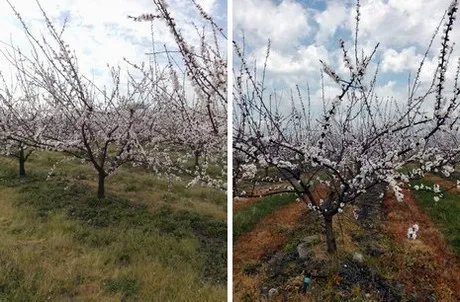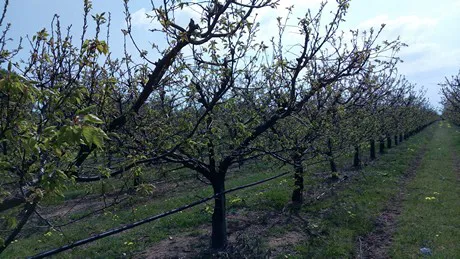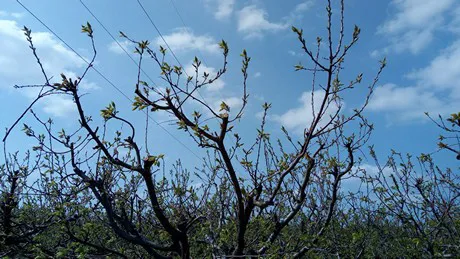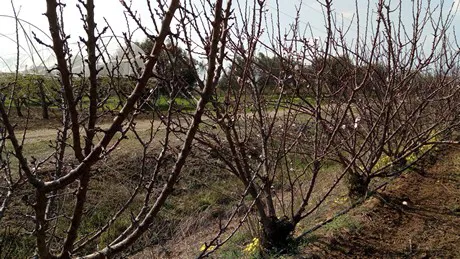Around one month after the last meeting with Franco Lillo, technician from OP AssoFruit Italia, FreshPlaza returned to analyse the stone fruit situation in the Ionian area.

"Results and expectations for the next apricot campaign are good as the precautions implemented and work carried out in winter have led to excellent results. Early varieties are now in their petal-falling phase and thinning operations have started around a week ago."
"The following late varieties are currently in full bloom: Farbela, Farlis Farbela, Lady cot, Faralia, Farbaly, Orange Rubis and Kioto. The latter is facing a few difficulties."
"Some blossoming problems are being experienced in a few areas in Basilicata and Calabria as there are only a few buds on trees."

Claudio Modarelli, a technician at Apofruit, reports that "the drop in temperatures has blocked plant development,so a few early varieties that had already accumulated their chill hours experienced very staggered blossoming."
"Other cultivars in need of more chill hours fared better and blossoming is now excellent. This is true not only for apricots, but also for peaches and nectarines. For the last in particular, blossoming is more abundant than last year."

A producer from Scanzano Jonico reports that "it is a disaster are trees are bare just like in winter. My orchards cover almost 15 hectares and growth is blocked. We do not understand what we did wrong."
"We risk not obtaining suitable volumes to tackle the market in the next campaign, we shall have to wait until late varieties ripen to start commercializing."

"However, on the same plot, just a few meters away, we have plants that are in bloom."
The unpredictable weather could have determined errors in judgement for what concerns the application of agronomic methods on early apricots. The hypothesis is that altered natural cycles led producers to think they could postpone and/or avoid carrying out a few decisive agronomic interventions which are actually essential.
